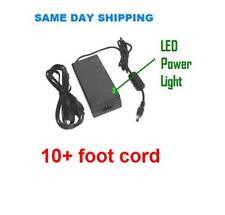Does Your Dog Need a Probiotic?

Does your dog eat grass or have problems with diarrhea or gas? Is he prone to ear and skin problems? If so, he may need a probiotic. A probiotic may even help to relieve your dog’s allergy symptoms. Here’s what every pet owner should know about probiotics for dogs.
What Probiotics Are
Probiotics are good bacteria that live in the digestive tract of all animals. They help the animal’s body digest its food, fight off bad bacteria, and they strengthen the immune system.
Why Probiotics Are Good for Dogs
Probiotics are very useful for keeping your dog healthy because they support the immune system. They also assist in the digestion of food. They can relieve tummy issues like gas, diarrhea, and constipation. Studies show they can also relieve allergy symptoms and help with mood and behavior issues. They may even help with tear stains, chronic ear infections, and other allergy symptoms.
Which Dogs Need Probiotics
Just about any dog can benefit from receiving a probiotic supplement, but some need them more than others. If your dog eats grass or has digestive problems like excessive gas or diarrhea, he probably needs a probiotic.
Probiotics can boost the immune systems of puppies and older dogs to help ward off illness. If your dog is recovering from a virus, parasites, an infection, or is dealing with allergies, a probiotic may help him get better faster.
Any dog who has been taking antibiotics should have a probiotic to help replenish the good bacteria in his digestive tract. And, dogs who are dealing with stress, such as moving or changing food, should have a probiotic to prevent an upset stomach.
It is important to realize that simply giving your dog a probiotic may not relieve an existing health problem. It’s important to consult with your vet to find out why your dog is sick before offering supplements. And, probiotics aren’t a substitute for feeding a nutritious food. Always offer your dog the best food you can afford.
Do Probiotics Have Side Effects?
It is possible to give too much of a good thing. If your dog is given too much of a probiotic at once, he could develop nausea, vomiting, or diarrhea. Remember to stick to the recommended dosage and you should be fine.
Which Probiotic is Best for Dogs?
It’s best to choose a probiotic supplement that is specifically marketed for dogs because it will have proper dosage recommendations on the label. They are usually easier to administer, too, because they generally come in a chewable or powdered form. Be sure to purchase the freshest product possible.
Our pets are part of the family and taking care of their gut health is a great way to keep them healthy. It’s never too late to add a probiotic to your dog’s daily routine, no matter how old he is.












